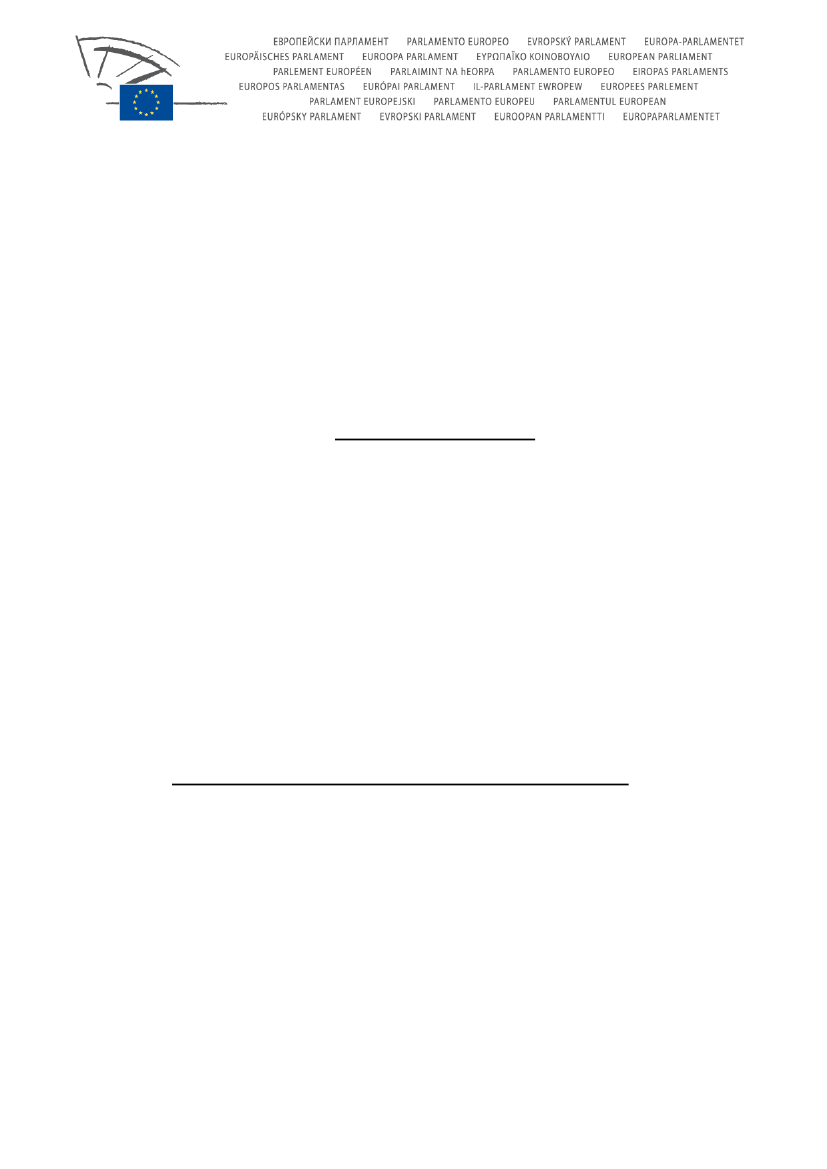Europaudvalget 2011-12
EUU Alm.del Bilag 3
Offentligt
Committee on Development
Subcommittee on Human Rights
INTERPARLIAMENTARY COMMITTEE MEETINGEuropean Parliament - national ParliamentsHUMAN RIGHTS CONDITIONALITY IN DEVELOPMENT POLICYBrussels, 11 October 2011European ParliamentJAN 4Q4 (József Antall building)15h00 - 18h30An orientation to the debateThe interparliamentary committee debate on human rights conditionality in developmentpolicy will be divided into two sessions; the first session will be devoted to a discussion onthe question as towhether human rights conditionality could be an obstacle to povertyreduction.In the second session discussions will centre on theeffectiveness of human rightsconditionality in a multi-donor environment.Finally, during the conclusions, some time will be reserved to a debate about the role ofnational and European Parliaments in establishing and monitoring of human rightsconditionality.The following background information aims to serve as guidance and orientation to thedebate.
I.
Is human rights conditionality an obstacle to poverty reduction?
The debate about human rights in development and about human rights–based approaches todevelopment has gained prominence over the past few years as a result of a re-evaluation ofdevelopment programs since the Vienna World Conference on Human Rights in 1993.Comparing current debates and discourse with those of the late 1990s, a number of changescan be observed. First, there has been a growing acceptance of the place of economic andsocial rights in development policy. Second, the governance agenda of donors has beenbroadened to encompass human rights.Human rights conditionality clauses in EU cooperation agreements were introduced morethan a decade ago ago. Relevant provisions in EU legislation (such as Article 3(1) ofRegulation (EC) No 1905/2006 establishing a financing instrument for developmentcooperation (hereafter the DCI Regulation) and Article 9 of the Cotonou Agreement) list thefundamental values on which the EU is founded and call on partner countries to commit tothem as well. In case of failure to observe these values, they provide for the suspension ofassistance (as for in Article 37 of the DCI Regulation and Article 96 of the CotonouAgreement).
What needs to be considered is how decisions on human rights conditionality are reached andalso whether the application of conditionality helps achieve the stated objectives. In mostcases suspension of aid may be the result of an international or European Union ban, whichindividual governments are obligated to follow. One approach is that an outright suspensionof assistance flows in cases of consistent and gross violations of human rights or seriousincidents might be needed to prevent legitimising and strengthening a regime through aid.However, from a human rights perspective, suspending aid can be extremely serious as it willaffect the very poorest more than the elite.This example illustrates that despite the complementary nature of human rights promotionand development strategies, important tensions persist between them. Some developmentactors challenge human rights accountability as both unrealistic and politically sensitive;others view strengthened human rights regimes at odds with state interests and policies;finally others, including NGOs, perceive international human rights as imposed ondeveloping countries “from outside,”. As a result, critics argue, the international human rightsregime remains inconsistent in its application to development and its impacts in that field arenot well documented. An increasing number of critics now consider that human rightsconditionality might actually constitute an obstacle to poverty reduction, because sanctionsfollowing human rights violations in developing countries receiving international aid canhave effects across the board, penalizing in particular the poorest and more vulnerablecitizens in those countries.In part due to this fact, the concept of "smart" (or targeted) sanctions has recently gainedground. In theory, smart sanctions are directed exclusively to certain individuals, the politicalelite or specific economic sectors of countries non respecting human rights and democraticprinciples, while sparing the general population, in particular vulnerable groups, or the entireeconomy of the country. Yet, there is no empirical evidence of the effectiveness of smartsanctions on the countries and elites on which they are imposed, or about the feasibility oftargeting sanctions thus avoiding damaging the population. For this very reason theireffectiveness is contested.Against this background some key questions to be considered are the following: Isdevelopment cooperation policy dependent on foreign policy, or should it be an autonomouspolicy? Furthermore, how can we succeed in making development cooperation policy reachthe poorest, even in cases where the government of the recipient developing country violateshuman rights and does not cooperate with the donor countries? Are we at this juncture at aturning point whereby the policy on human rights conditionality should be thoroughlyreviewed? Do restrictive measures deliver effective results in terms of achieving politicalobjectives and promoting human rights, without at the same time negatively affecting thedevelopment of the country, and in particular vulnerable populations in that country?Moreover, can smart sanctions constitute an effective alternative to these restrictivemeasures? Is human rights conditionality just intended to appease domestic public opinion?To what extent should human rights conditionality be combined with incentives in order notto halt the development of that country? Finally, should we shift from the "whether" humanrights conditionality should be used to the "how" it should be employed so as not to createobstacles to poverty reduction?An exchange of views could also have regard at which actors (both at European and nationallevel) take the leading role in imposing, monitoring and assessing human rights clauses incooperation agreements and conduct human rights dialogues, how the EU and its MemberStates apply (or not) human rights criteria in their decisions on whether to engage/suspendaid, how is this balanced with other considerations, whether/how human rights considerations
might ‘positively’ influence an allocation of resources and what effects human rightsconditionality have on the most vulnerable sectors of the population.
II
Can human rights conditionality be effective in a multi-donor environment?The topic of this panel raisestwo questions:should we discuss conditionality in a multi-donor environment?; indeed, the query into effectiveness begs the preliminary question ofwhat the policy's objectives are and whether conditionality is the right tool to achievethem.Firstly, let us address the question of the conditionality policy's objectives and the meanscapacity to attain them.Concern for human rights in the external policies of the (then) EEC first emerged in thelate 1970s, triggered by flagrant human rights violations occurring in countries such asUganda and the Central African Republic, both of which had been parties to the Lomé IConvention and hence entitled to trade preferences and aid. Bound by the internationallaw principle ofpacta sunt servanda,the Community was faced with a moral andpractical dilemma: its funds were benefiting a government involved in atrocious humanrights violations, but it had no way of suspending the granted privileges.A second impulse came from the European Parliament. Influenced by public opinion andcivil society pressure, the EP's first annual report on human rights in the world, in 1983,invited the Commission to draw up a proposal aimed at incorporating human rightsconsiderations into the Community's external relations. Although the Commission at thatpoint declined to do so, this marked the starting point of continuous pressure from theEuropean Parliament aimed at the establishment of a true external human rights policy.Thus, we can discern two impetuses lying at the basis of the development of aconditionality policy. First, the need to provide a mechanism which allows for thesuspension or termination of an agreement or part thereof if the partner country'sauthorities flagrantly violate human rights or democratic principles. Second, a positiveimpulse, chiefly substantial in character and emerging from the European Parliament,namely the need to develop a comprehensive external human rights policy.The tools available can be divided into two categories: negative conditionality, namelypunishing partner countries for bad behaviour; and positive conditionality, which rewardsprogress.Although we had to wait until the 1990s, human rights clauses are now part and parcel ofthe Union's framework agreements. In their current form these clauses contain twoprovisions: the substantial 'essential elements clause', which states that the relationship isbased on respect for human rights and democracy; and the procedural 'non-executionclause', which allows for the unilateral suspension of privileges in case of violations. Towhat extent, however, do these clauses address the concerns which lie at their basis?Since the seminal judgment of the Court of Justice inPortugal v. Council,1it is beyonddoubt that human rights clauses can serve to suspend an agreement, thus satisfying their'negative' conditionality objective. Indeed, the Court confirmed that the suspensiondimension is 'an important factor' in the interpretation of the clauses' functioning. Do
1
C-268/94, [1996] ECR I-6177.
they, however, also have an underlying potential? Indeed, it can be argued that a humanrights policy worthy of its name cannot content itself with merely reacting to violations.The answer to the above question is a qualified 'yes'. It is true that the essential elementsclause may serve as a basis for including human rights and democracy as elements ofpolitical dialogue, and that it can be used to stall objections of partner governments to EUaction on its territory (for example the funding of civil society or the establishment ofcompliance mechanisms). However, human rights clauses cannot serve to enact rules onhuman rights or to adhere to human rights conventions and with the procedural legfocused on non-execution it is chiefly a reactive instrument, exemplifying 'negativeconditionality'.Negative conditionality has a number of problems linked to its use. Firstly, through theapplication of the sanction the EU loses (part of) its leverage over the partner country. Itis also quite a challenge to direct pressure towards the offending authorities withoutharming the country's population. Moreover, the application of sanctions against oneregime and not against another similar offender raises the question of double standards.So far, the application of the human rights clause has been limited to a handful of cases,often concerning the poorest and least influential partner countries. Negativeconditionality indeed seems at home in the field of economic inequity and asymmetricaldependency relations.Hence, whereas negative conditionality serves its purpose of providing a tool whichallows the EU to prevent its funds flowing to authoritarian regimes violating theirpopulations' rights, it is questionable to which extent it contributes to the development ofa coherent policy aimed at the promotion and improvement of human rights in thirdcountries.Positive conditionality then involves the prospect of awarding benefits, should therecipient country meet certain elevated standards related to the protection of human rightsand the implementation of democratic principles. These incentives form part of a pro-active policy, based on cooperation with the partner countries, and represent a 'carrot'rather than a 'stick'. The measures not only reward previous positive behaviour, butreinforce it and buttress further development along the same lines. Responsibility isshared, as both actor and recipient are active in the attainment of the conditions that areset. However, these measures come with a number of technical and budgetary problemsattached, not least the fact that they are expensive and can lead to unpredictable demandsfor expenditure.The above illustrates the fact that 'conditionality' is a multi-layered, complex conceptwhich serves multiple purposes through multiple tools. Application, especially ofnegative conditionality, arguably depends to a large extent on geopolitical considerationsand effectiveness depends on the partner country's attitude as much as on policy measuresthemselves. These considerations are important, as their consequences reflect on thedebate on the effectiveness of conditionality, specifically in a multi-donor environment:oAs regards the positive objective of conditionality, namely the fact that it is anexpression of the EU's pro-active policy to support human rights, we can consider ifthis changes at all because of other nations' actions and whether it should;oAs regards negative conditionality the same question can be raised. However, theanswer is likely to be more nuanced, as application is clearly inspired by economicand strategic motives. Especially in light of the potential downsides touched uponabove, it is important to ask whether the positives do not outweigh the negatives, inparticular when other countries' actions undermine the EU measures' effectiveness.
oOn the other hand, one can wonder what the effects would be if the EU were to take amore principled approach to negative conditionality, applying it more systematically,which is something Parliament has long demanded. This could be combined with amore attractive, incremental positive conditionality scheme. Such an approach wouldgive more programmatic substance to negative conditionality, making it part of apolicy instead of a mere mechanism to react to violations in a haphazard way. In thatcase, it would be much harder to defend letting other nations' actions influence theEU's, as geopolitical considerations would play less of a role in the decision-makingin the first place.oRegardless, as indeed conditionality's effectiveness depends also on the partnercountry's attitude, which in turn is affected by the behaviour of its other donors, thereis a clear need to coordinate human rights conditionality better. As regards donornations with whom we share our belief in the universality of human rights anddemocratic values, we need to think about the establishment of consultation andcoordination mechanisms, be they formal or informal. As regards those nations whotake a less scrupulous approach to human rights in their foreign policy (in particularChina), the discussion is more difficult; in any case we need to think about ways toengage and attempt to convince them that there are added dividends to an externalrelations approach which intends to promote and respect human rights and democraticvalues.





